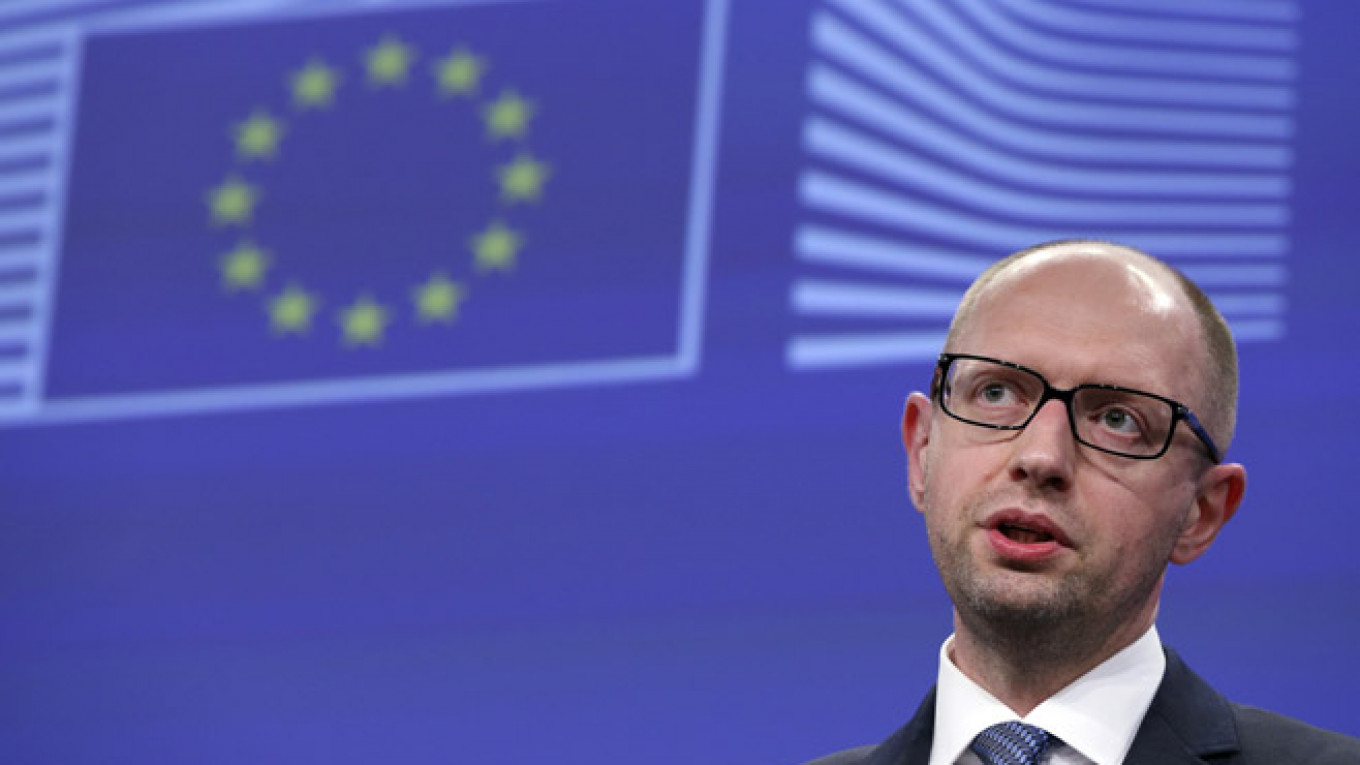The Kremlin has shrewdly played on the nostalgia that people in Ukraine's eastern and southern regions still feel toward the Soviet Union. This strategy might provide short-term benefits for the Russian leadership, but it is fraught with long-term costs for the Russian people.
First, it is expensive. Russia is scrambling to collect enough cash to pay for all of Crimea's needs. According to Vedomosti, the Regional Development Ministry has proposed spending up to $33 billion on Crimea's infrastructure alone, funds that may come in part from scrapping projects in Russia's other regions.
Second, Russians pay an indirect price for this strategy: higher prices resulting from a weaker ruble, incendiary and relentless government propaganda that creates a siege mentality and the growing exodus of Russia's progressive young people, scholars, and scientists — all of these are direct consequences of the "geopolitical victories" of the first half of 2014.
But even more importantly, most Russians have lost touch with reality in their euphoria over the imaginary return of the country's long-vanished greatness. And they will remain in this state until the ruling class as a whole sobers up from its heady intoxication and personally gets hit with the effects of Western sanctions and a stagnating economy, and realizes that Russia's "pivot toward the East" will do nothing to improve the country's prospects.
However, the European Union seems unwilling to call Russia to account for its actions.
It is generally understood that if you blackmail an opponent, you must be prepared to carry out your threat. The European Union now finds itself in this tricky situation, having managed to entangle itself in the web of conditions and terms it wove around Russia concerning the presidential elections in Ukraine.
Prior to those elections, EU leaders openly warned Russia not to interfere in the process under threat of a new round of economic sanctions. On the surface, it seemed that this demand was heard: President Vladimir Putin announced his readiness to work with the new Ukrainian authorities and accompanied that statement with "wise counsel" for organizing the democratic process in Ukraine.
Still, Russian citizens head the self-proclaimed republics, "volunteers" of unknown origin carrying modern weapons join the ranks of the separatists, and Ukrainian border guards must repel attacks from separatists on one side and hold back Russians on the other side who are pushing to cross the border and join the separatists.
So, is Russia interfering in the affairs of a sovereign Ukraine or not? In elections, no, but in everything else, yes. In fact, the "palette" of the Ukrainian crisis contains far more colors and layers than Europeans are willing to recognize.
Although the legitimacy of the government is an important issue, judging events solely through the prism of democratic procedures is short-sighted and even cowardly. Instead, Europe should focus more broadly on bringing Ukraine into its political orbit if it wants real change.
The EU cannot make Ukraine a full member at present, but it must offer something comparable. Ukraine needs something akin to the Marshall Plan. Such a plan must provide solid national security guarantees — despite the ongoing civil war in Ukraine's eastern regions — along with clearly-defined opportunities for the next 10 years and a strict action plan for how to achieve them.
The most dangerous threat before the nascent Ukrainian nation is the possibility of once again failing to align itself with Western civilization. Given its precarious financial position, it must quickly move to establish its freedom by drawing closer to the EU. And is can there be any reason to aspire to anything but full independence?
Yekaterina Kuznetsova the director of European programs at the Center for Post-Industrial Studies in Moscow.
A Message from The Moscow Times:
Dear readers,
We are facing unprecedented challenges. Russia's Prosecutor General's Office has designated The Moscow Times as an "undesirable" organization, criminalizing our work and putting our staff at risk of prosecution. This follows our earlier unjust labeling as a "foreign agent."
These actions are direct attempts to silence independent journalism in Russia. The authorities claim our work "discredits the decisions of the Russian leadership." We see things differently: we strive to provide accurate, unbiased reporting on Russia.
We, the journalists of The Moscow Times, refuse to be silenced. But to continue our work, we need your help.
Your support, no matter how small, makes a world of difference. If you can, please support us monthly starting from just $2. It's quick to set up, and every contribution makes a significant impact.
By supporting The Moscow Times, you're defending open, independent journalism in the face of repression. Thank you for standing with us.
Remind me later.






